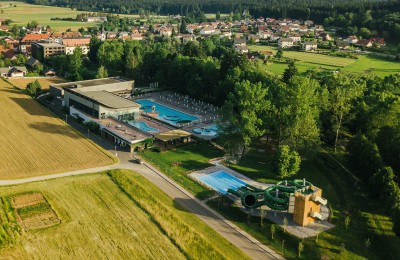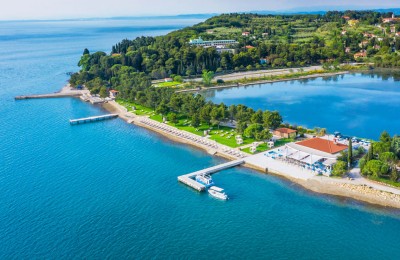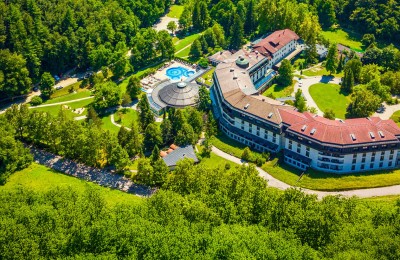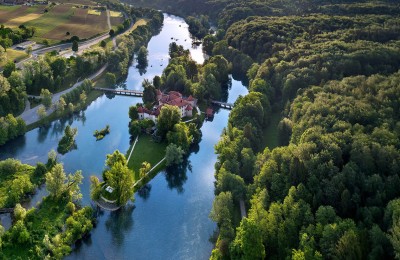Total price:
We have three bee houses – two in Otočec and one in Strunjan
How we take care of bees at Terme Krka
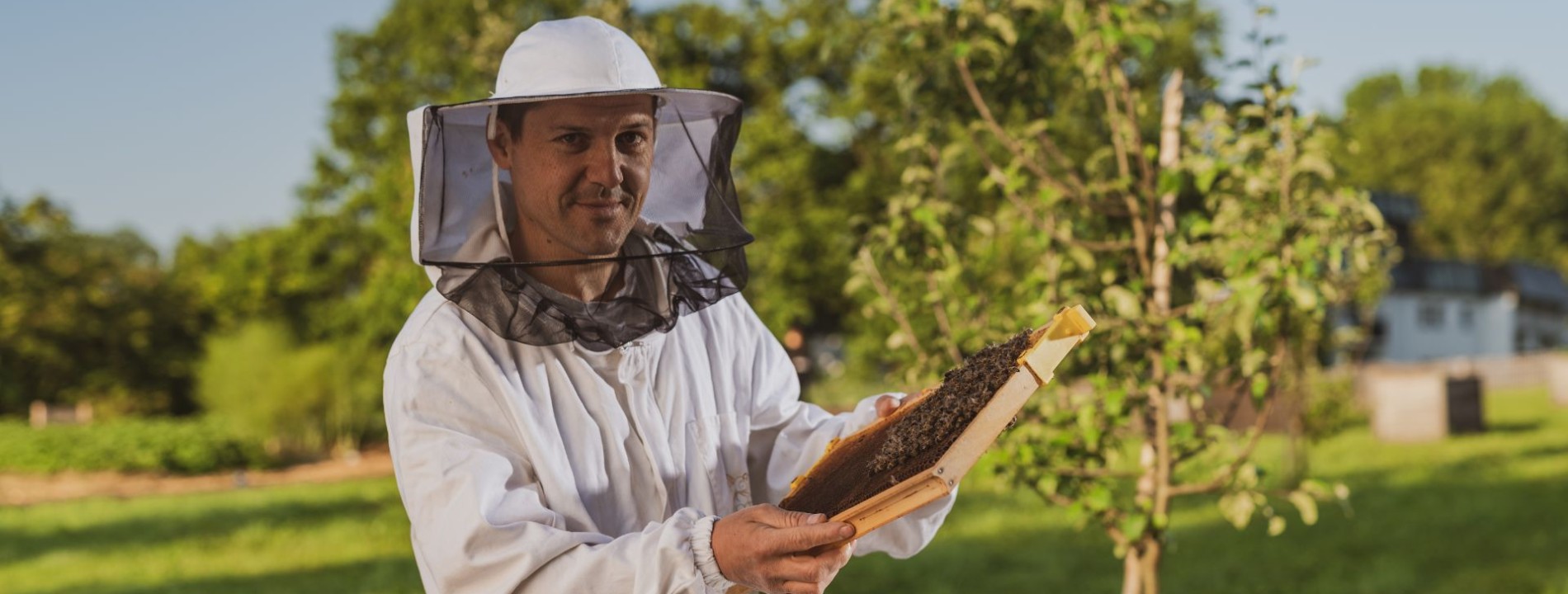
In the Strunjan Landscape Park, near Hotel Svoboda, we set up a bee house this year. Our guests could enjoy delicious and healthy honey soon. It will be offered for breakfast and used to make sweet desserts.
For several years we also have a bee house in the castle garden in Otočec, alongside organically grown vegetables and berries. “A bee house goes well with vegetables, spices, herbs and fruit. Bees are responsible for pollination and – thanks to the position of the bee house near the woods and meadows – produce delicious honey, which is food for gods,” says Jernej Lekše, the beekeeper. This year a new bee house was added at the Golf Castle Otočec golf course. The hotel guests of Otočec and Terme Šmarješke Toplice can enjoy honey and produce from the castle garden. We try our best to provide enough food for bees in the vicinity of our hotels, for this reason we leave some of the lawns uncut and plant honey plants.
Beekeeper Jernej, who works for us as a maintenance worker, takes care of the bees with love
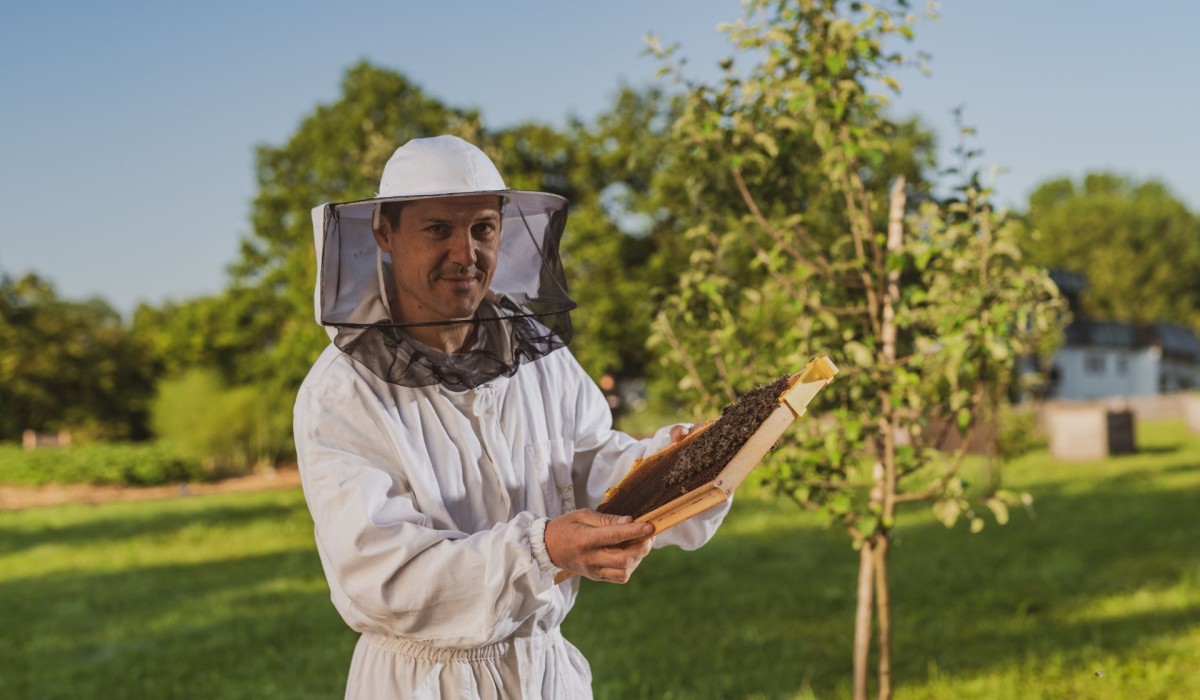
Did you know?
-
Carniolan honey bee is the most hard-working bee
The Carniolan bee is known as the meekest and most hard-working bee of all bee breeds. It overwinters well in small colonies, develops rapidly in the spring, and needs little food; however, a lack of food can weaken a bee colony significantly. Compared to other breeds, Carniolan bees start to emerge earlier, they forage in distant pastures, and they produce more honey as well.
-
Pollinators
Bumblebees, another important pollinator, also pollinate in cold and windy conditions as well as plants growing individually. We can do a lot to help the bees and nature as well as ourselves by planting honey plants and setting up nesting sites for solitary bees.
-
Seaside area has an advantage
In the Slovenian seaside regions, the honeybee season starts in early spring, earlier than in the mainland regions, and lasts well into autumn. The reason for this is that most flowers produce nectar most intensively at temperatures between 18 and 30 degrees Celsius.
-
Rain – (un)beneficial?
After rain, the quantity of nectar in plants gradually grows and peaks on the third day, while long periods of rain reduce nectar production and thus the amount of food for the bees. Bora, strong wind from the northeast, also causes trouble to the bees as it interferes with their flight.
How can we all help bees?
- Don’t pick flowering plants that bees pollinate (zinnias, poppies, marigolds, oregano, chamomile, thyme, sunflowers …).
- Have flowering meadows and gardens at home.
- Don’t use pesticides and artificial fertilizers.
- Don’t disturb bees and bumblebees – they like peace.
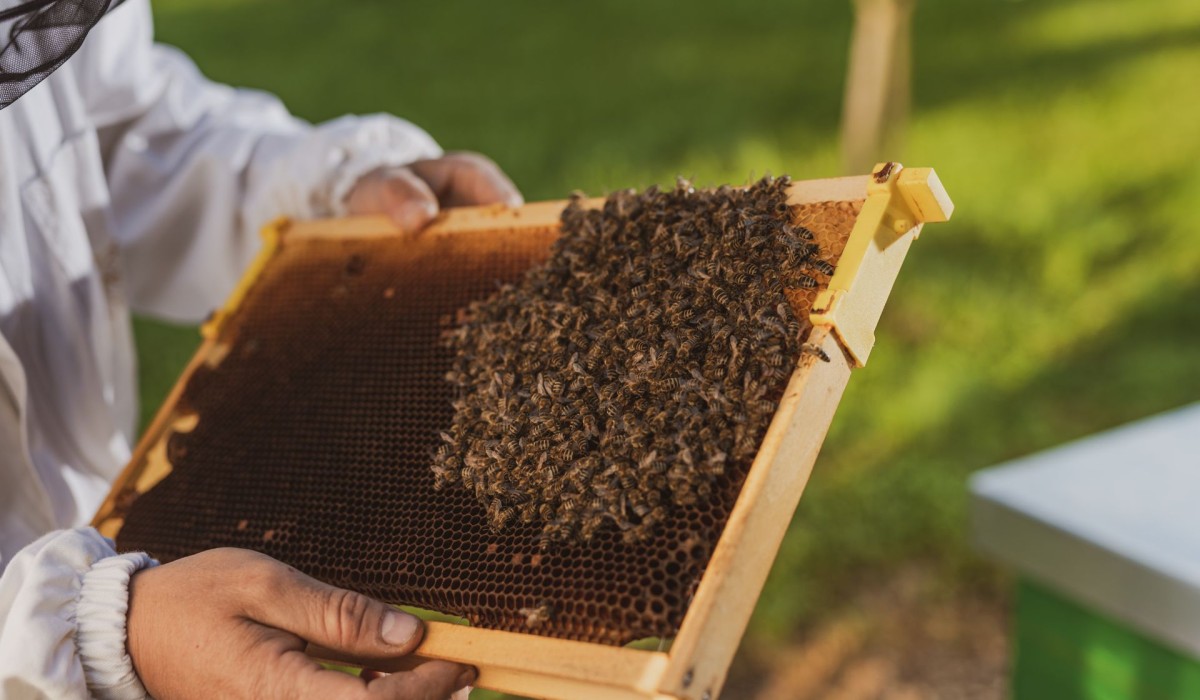
The well-known Slovenian saying “as busy as a bee” has truth in it. Bees are busy to produce high-quality food such as royal jelly, honey, pollen, propolis and even bee venom. However, their most important job is pollinating almost three fourths of all the plants that produce more 90% of the food in the world. The bee most appreciated as a hard-working bee is our bee, the Carniolan bee.
